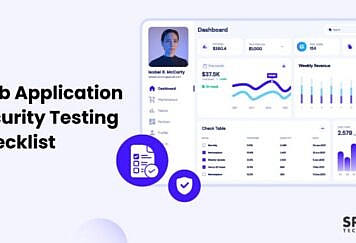Technology isn’t going away. Neither are the data security concerns that come with it. Organizations that fail to protect sensitive information also fail to meet clients’ needs and create positive customer experiences. These businesses and agencies risk their reputations and future operations by becoming examples of what not to do.
Making security a priority can improve customers’ experiences from the first online chat to the brand advocacy stage. When clients know their data is safe, they’re more likely to trust organizations with it. That trust alone can prompt a lead to commit to a sale and a longtime client to bring in more business.
Providing customers with better security isn’t just a compliance checklist item. It helps give your buyers peace of mind and sets your business apart from the competition. Let’s look at how your company can use data security to better your clients’ experiences.
It Protects Personal Information
Most customers aren’t going to appreciate news of a data breach. Concerns about how much personal information companies have and what they do with it may make clients hesitant. They might be less willing to set up online accounts and hand over accurate data. A mobile app, online store, or checkout process that looks sketchy may also cause customers to back away.
Common signs that a site or network is secure, including up-to-date security certificates, can establish trust. But so can tools like cloud security as a service, which scans and monitors networks and devices for suspicious activity. This extra layer of protection blocks threats to help shield clients’ personal information and predicts what’s coming. Your business can neutralize threats of data theft and misuse while reassuring customers.
It Builds Consumer Confidence and Trust
Organizations ask leads and clients for information to personalize their experiences. They also need data to process sales, extend credit offers, and send messages. Survey research reveals that 60% of consumers think exchanging personal data is worth it. But the caveat is consumers want a better customer experience if they give companies their information.
At the same time, clients expect more control and transparency. The above survey also found that 90% of consumers want to know what information businesses have and who handles it. Onboarding support, including FAQs and secure customer service portals, improves transparency. Educating clients about what they can opt out of and when likewise builds trust.
It Moves Customers Through the Buyer’s Journey
The typical buyer’s journey consists of five steps or stages. These stages are awareness, consideration, decision, retention, and advocacy. Marketers sometimes compare the awareness stage to dating. It’s a step where leads and businesses learn more about each other and decide whether they want to keep engaging. Your business is doing its best to attract leads so they convert.
Before prospects give a company their information, they’re looking for certain criteria. More than likely, those criteria include data security measures. For example, some potential customers may want the option of two-factor authentication as a bare minimum for online accounts. Others will write off businesses that send spammy emails without a clear way to set communication preferences or unsubscribe.
During the awareness stage, it’s critical to persuade future customers that their data is safe and used for legitimate reasons. However, data security measures and assurance are just as important as clients move through the buyer’s journey. Customers may fall away during the consideration, decision, and retention stages if they think their information is at risk. Examples include a lack of account security measures such as biometrics, session timeouts, and/or fraud detection tactics.
It Reassures Clients About Compliance
Tighter consumer privacy laws, such as the California Consumer Privacy Act, exist because of customer complaints and demands. Unfortunately, businesses have either broken consumer trust or exposed potential security vulnerabilities in the past. Complying with federal, state, and industry security practices shows consumers that businesses are serious about customers’ privacy concerns and needs.
Companies that exceed the minimum requirements of regulations and industry standards place themselves on the cutting edge of consumer privacy. Understanding how business practices impact clients and compromise security leads to better protection. Common practices like selling or exchanging consumer information with third parties increase the risk of exposure. Letting your customers know your business doesn’t exchange or sell their data can boost their confidence.
It Turns Customers Into Advocates
Word-of-mouth advertising is a thing because people love to talk about brands that excite and delight them. You might not link data security and consumer privacy to customer advocacy. Yet one case of fraud or the exposure of sensitive data can dampen consumers’ enthusiasm. Even repetitive phishing emails that spoof your brand’s logos, images, and official email addresses will make customers think twice.
When your business keeps clients’ data secure and mitigates cybersecurity threats, you’re showing your brand lives up to its promises. In other words, you’re continuing to meet customers’ expectations and delight them. With the increase in cyberthreats and data exposures, you might even be exceeding some clients’ expectations. Consumers will be more willing to advocate for and refer others to a brand that more than satisfies their wishes.
Improving Customer Experience Through Data Security
In an age where everything seems to happen online, most businesses find it impractical to not collect consumers’ personal information. However, prospects and existing customers want to know how companies use their data and that it’s secure. Cloud security and authentication tools can both assure consumers their information is safe and provide a more positive experience. So can business practices that break the mold and exceed minimum security requirements.
Follow TechStrange for more Technology and Digital Marketing News.




